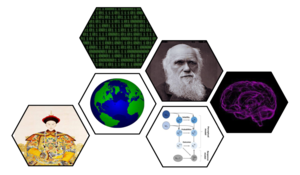Global Strategy Amidst the Globe’s Cultures: Cultures in Individual Cognition, States and the Global System

Global Strategy Amidst the Globe’s Cultures: Cultures in Individual Cognition, States and the Global System
Author | Editor: Wright, N. (Intelligent Biology)
Executive Summary
How can the US make global strategy in a world both vast and rich with cultural diversity? This matters: the US shaped the global system more than any other power since 1945, and that system hugely benefited the US and much of the globe. Whoever leads the global examine two aspects of this challenge.
First, how can US policymakers make global strategy? The globe is vast, with some 193 countries, 4 billion internet users, 7000 languages, and 100 million Amazon Alexas. ‘Global strategy’ involves important activities and interests in all the continents that contain a significant fraction of the world’s population. It isn’t just grand strategy, which any state can have. It isn’t just international strategy: the global system differs from the sum of its nations, because of transnational societal networks and domains like global finance or cyber. Three defining US conflicts were global: both World Wars and the Cold War.
Recommendations:
(1) Adopt a global mindset. Policymaking should include a global vantage point.
(2) Use global system effects, not just actor-specific effects. The US may most decisively influence China, for instance, via actions with Russia, global finance or Japan.
Second, how should strategy consider global cultural diversity? Culture is the ideas, customs, and social behaviour of a human group and reflects ‘how things are done around here.’ Many disciplines study culture (e.g. cross-cultural cognition and business, strategic, or political cultures) – and all of them find it slippery to define and measure. I integrate these largely disconnected fields into a mutually reinforcing framework.
I also conduct two deep dives on culture:
Culture in the individual’s mind and brain: I systematically reviewed thousands of cognitive science papers comparing decision-making in East Asia and the West. I found: (1) for most aspects of choice no robust evidence shows cultural differences (e.g. risk or fairness); (2) some differences are often discussed but lack any clear testing (e.g. East Asians care more about “face”); and (3) some aspects of choice do consistently differ, e.g. East Asians tend to engage in more context-dependent processing than Westerners, by attending more to a salient object’s relationship with its context.
Next I asked if these cognitive differences relate to strategic thinking. I compared China and the US using empirical data from doctrine, elite opinion (including interviews in China) and extant scholarship. Context-dependence, for instance, helps explain different representations of deterrence, offense and defense.
Recommendations:
(1) Apply a framework integrating cultural insights from multiple disciplines in order to anticipate both (a) competitors’ decision-making, and (b) how to influence the global swing states crucial to success in global grey zone competition.
(2) Cultural commonalties between the world’s humans greatly outweigh differences, but specific differences—e.g. context dependence—can provide operationalizable tools to cause intended, and avoid unintended, effects.
Comments